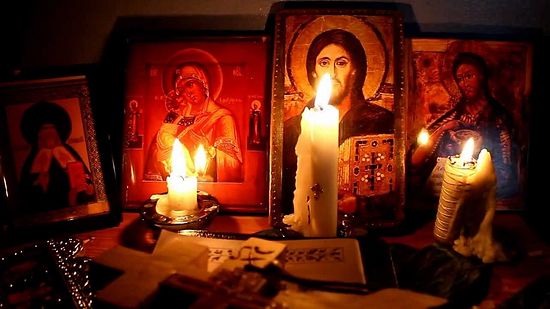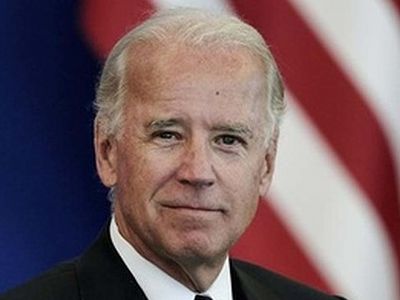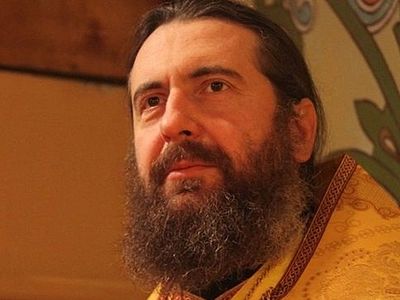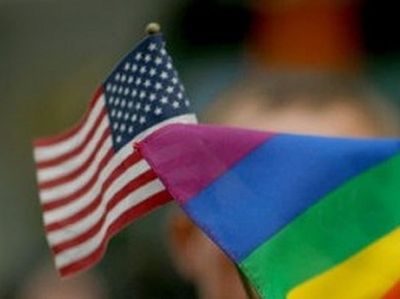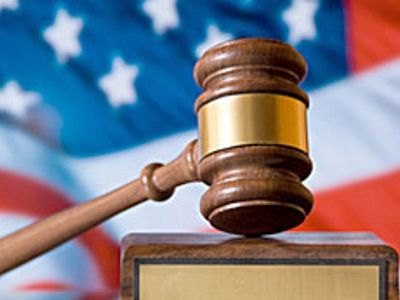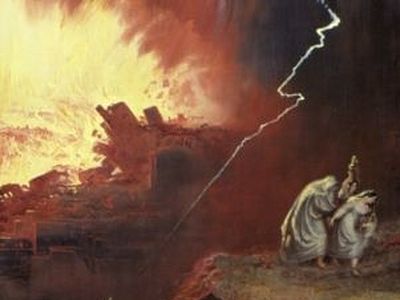This year, some will discuss/argue politics, and many will be lost in their anger. Whatever the outcome, the nation has reached a frightful point in its history. Many will shout and many will curse. But some few will stand before God and intercede for mercy. Will you join me and repent for America? You don’t have to be American. Abraham was not a citizen of Sodom or Gomorrah.
Can a nation ever sin? If so, how can it be forgiven?
The stories and prophetic writings of the Old Testament are replete with examples of national sin. There are certainly stories of God dealing with individuals, but, on the whole, His attention seems to be directed to Israel and other nations as a whole. The promises and pledges are made to a collective people and the chastisement falls on the whole nation as well. Our modern sensibilities, rooted in a fundamental commitment to individualism, recoil from this collective treatment. And we are not the first to complain.
In Genesis 18, Abraham argues with God about the cities of Sodom and Gomorrah. The Lord has threatened to destroy the cities on account of their sins. Abraham raises the troubling question:
“Would You also destroy the righteous with the wicked? Suppose there were fifty righteous within the city; would You also destroy the place and not spare it for the fifty righteous that were in it? Far be it from You to do such a thing as this, to slay the righteous with the wicked, so that the righteous should be as the wicked; far be it from You! Shall not the Judge of all the earth do right?” (Gen 18:23-25)
Thus, this question has had a prominent place in the thoughts of the faithful since the very beginning. In Abraham’s conversation with God, he asks if God would spare those cities even if only fifty righteous were found. God agrees. With continued pleading, Abraham takes the the number down to 10 righteous (and stops). And the Lord says that He would spare the cities for the sake of just 10. Alas, less than ten were found. But we do not upbraid God that He was willing to spare the unrighteous for the sake of a mere handful.
There is a mystery contained within the entire exercise of that conversation. For the truth is, none of us stands alone. No one stands free of the actions of others. Our lives are deeply connected. We are ourselves the offspring of many generations, and we carry within us ever so much that was not of our own choosing. Our inheritance is tainted—both for good and for ill.
Fr. Thomas Hopko describes some of this as “generational” sin. To understand this requires that we remember that sin is not a legal problem. It is not about what is fair or unfair. It is about a mystical burden that we experience as debt, hindrance, oppositional weight, weakness, brokenness and corruption, or just the starting place of our lives. Virtually everything in our lives is gifted to us, and there are many “gifts” that we would prefer never to have received. It is part of our incarnational existence. We are the offspring of others. To have an embodied existence in space and time is to have a body burdened with the DNA of eons and a family and culture that is both the product and carrier of history. Our own existence is a consequence of everything that has come before us. We cannot rightly suggest that such a contingent existence comes free.
Of course, many historical burdens become the targets of political attention. No human being, no ethnic or national group is without sin. Some sins are more recent and obvious than others. But our accusers can never plead innocence. Acknowledging this does nothing to remove our burdens.
In the 20th century, there have been some notable national crimes that have, in some way, been acknowledged. Japan renounced its military in response to the atrocities and errors of the Second World War. Germany paid reparations to Israel and enacted numerous laws renouncing and restricting the scourge of Nazism. Many war criminals were punished. The Russian government, with no outside political pressure, not only acknowledged many of the crimes of its Communist past, but also built memorials and rebuilt churches (often returning properties that had been taken away) in an effort of public repentance.
It has rightly been noted that “history is written by the victors.” It is therefore the case that we more easily repent for the sins of history’s vanquished and leave the writing to the victorious. But the burden of sin as historical reality remains. Unaddressed, the sins of the past become the problems of the present. Many of the most enduring conflicts in the modern world represent centuries of unresolved issues and the inherited burden of our ancestral legacy.
Often the legacy of history is carried on in competing narratives. We do not always know or rightly remember the details of what happened, but we know all too well the emotional burden of its trauma. Hatred can be a very ancient thing.
And it is to trauma that I want to direct our attention. Trauma is a word for the damage we suffer in extreme circumstances. It can occur as a result of natural disaster, or war—any time and place in which we are endangered, injured, or exposed to terrible actions. People do not experience war and then walk away as though nothing had happened. The war stops outwardly, but it continues inwardly. This experience is as old as mankind itself. Trauma sometimes leaves people emotionally and even physically crippled.
Among ancient peoples, the trauma of life was met with liturgy—rituals, both public and private that sought to restore them to their right minds, to appease the wrath of the gods or the spirits of their enemies. The collective psyche of a whole people was set right through various actions and beliefs that worked to make peace and re-establish righteousness.
Modernity has very few such rituals. The secular state, presiding over competing and disparate groups has almost nothing to which it can appeal that serves as catharsis or repentance, or even thanksgiving. Sport (such as the Super Bowl) comes closest to public liturgy in modern America, but it serves nothing transcendent, nothing permanent. It cannot heal or speak to the needs of a nation.
The outcome of this lack is an inability for nations and often individuals to be healed of their trauma. The wounds of lost wars or historical sins remain unaddressed, erupting from time to time as renewed trauma in the national psyche.
Studying parish ministry in seminary, I was introduced to the phrase, “recurrent latent cycling.” It was meant to describe a struggle within the life of a parish that erupts periodically, that is, in fact, the same struggle. It might be around a new presenting issue—but it was still the same struggle. Healing the parish required a discernment of what was actually going on—to bring something that was latent into the light of day.
Nations (and individuals) who ignore their wounds and griefs do not leave them behind – they bring them forward and repeat their battles endlessly. Subsequent generations who never knew the first cause, become the unwitting bearers of the latent violence and destruction that they have inherited.
Though Orthodoxy does not generally use the term “original sin,” it doesn’t thereby deny the reality of the inherited burden of sin. The growing study of epigenetics would suggest that we may even inherit such burdens genetically.
The medicine we have received from Holy Tradition for this on-going sickness is repentance. Of course, it is very difficult for nations to repent, though there would easily be services for such in the Orthodox tradition. However, the shame associated with national or collective sin is often denied or retold in other ways. Without repentance, nations are doomed to relive, repeat or act out the bitterness of their trauma.
There is, of course, another way. It was first expressed in the prophetic words of the High Priest Caiaphas as he contemplated the Jesus problem:
You know nothing at all, nor do you consider that it is expedient for us that one man should die for the people, and not that the whole nation should perish (Joh 11:49-50).
The death of Christ on the Cross becomes the public liturgy for the sin burden of Israel. Of course, He was the public liturgy for the sin burden of the whole world. But there was a principle articulated in His sacrifice – that one man could die for the whole. This is not a substitutionary legal event. Rather, it is the mystery of coinherence and koinonia. “He became what we are that we might become what He is,” the Fathers said. It has also been the knowledge of the Church that we are invited into that selfsame sacrifice. Buried into His death in Baptism, we are united to His very crucifixion. United with Him in the grave, we journey with Him into Hades, and there, brave souls make intercession for the sins of the whole world, and with Him set souls free. The Elder Sophrony describes such brave souls as Christ’s “friends.”
For at least as long as the days of Abraham, we have had intercessors who saved the cities and nations of the wicked. Their prayers were effective because they prayed in union with the one mediator and true advocate, Christ our God.
Abraham was God’s friend. As God visited with him, He said:
Shall I hide from Abraham what I am doing, since Abraham shall surely become a great and mighty nation, and all the nations of the earth shall be blessed in him? (Gen 18:17-18).
This is God’s inauguration of Abraham as an intercessor for the nations. The greatest friends of God have always taken up this same intercessory role. Through Christ and the prayers of our holy fathers, God preserves the world and saves the nations from the full brunt and weight of their history.
There are thus two kinds of people: those who are the weight of history, and those who join themselves to Christ in their repentance and bear the weight of history. This latter role is the true life of the Church and the heart of her who prays, “On behalf of all, and for all.”
